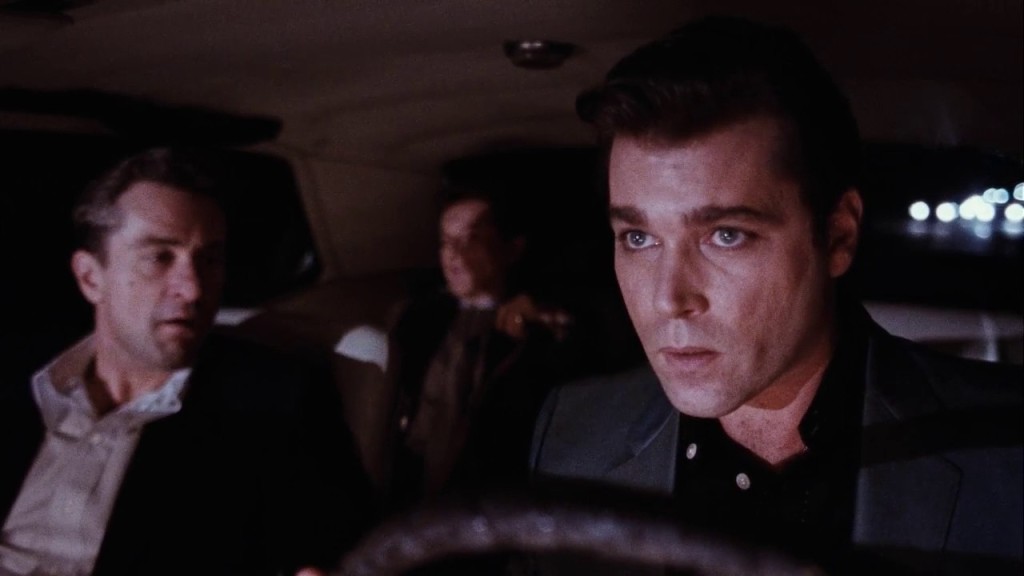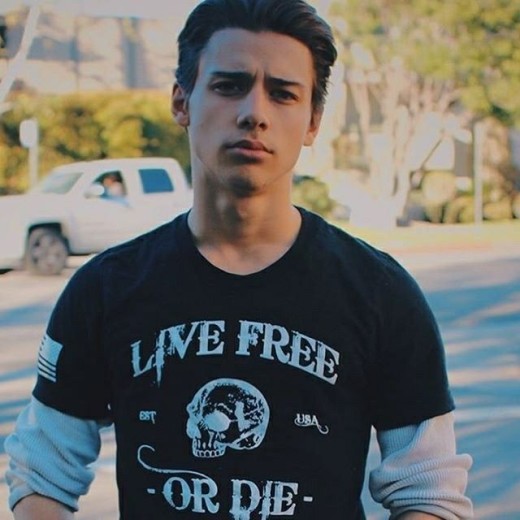When I heard that Searching was a good movie, I was skeptical. A feature-length mystery told on a computer? Stuff like this always sounds good in theory. But when you get into the writing process, the scale of just how difficult it is becomes apparent. Even the simplest moments can be hard to work out. For example, let’s say your hero has to go to someone’s house and confront him. In a normal movie, you just write the scene. But in a gimmicky computer-only movie, you must construct the whole thing through this artificial lens of “reality” seen through the eyes of computers. So what’s your hero going to do? Show up with an iphone in his hand and record the whole thing himself? Why would he do that?
One of the things I’ve become extremely appreciative of in screenwriting over the years is authenticity. As long as a scene feels genuine and truthful, I’m invested. The second the writer starts constructing artificial reasoning into the plot beats, I check out. This is one of the reasons found-footage died. The grandfather of the genre, Blair Witch, made sense in that the group was documenting their search for a legend. But as found footage was forced to get bigger, writers had to work harder to justify why people would be holding cameras in situations. I mean, if you’re writing the found footage version of Die Hard, why would John McClane be holding a camera up to tape Hans while Hans held John’s wife hostage? Yet these were the kinds of scenarios found footage was asking us to buy into.
So I was shocked that Searching not only made all of its artificial beats plausible, but used its unique medium to improve those beats. There’s a moment in the film where the dad is convinced one of his daughter’s friends is responsible, so he confronts him at a movie theater and punches him in the face. Again, you can’t just show this scene like you would in a traditional movie. So, instead, we see the scene through a teenager at the scene who recorded it on their phone and uploaded it to Youtube (“Crazy Dad Theater Attack”). But what’s really amazing about this movie is that it’s got the tightest screenplay I’ve seen all year. There isn’t a single wasted moment. And what’s most surprising is that despite its cutthroat pacing, it still manages to pack an emotional wallop. Amazing character development AND great plotting? How often do we see that these days? Here are 10 screenwriting lessons to take away from Searching…
WARNING: LOTS OF SPOILERS BELOW (Searching is available to rent. I suggest you watch it before reading the below tips)
1) A little emotion early can go a long way late – A lot of people will leave this movie talking about its unique form of storytelling. But Searching’s secret sauce actually occurs during its first five minutes. It’s here where we see, through pictures, video and e-mail, how David loses his wife (and Margot, her mother) to a two year battle with cancer. Searching would’ve been a decent film without this scene. But it becomes a great one with it. Connecting these two through that devastating loss makes us root a million times harder for them to reunite.
2) When writing a mystery, create a character that the audience is convinced did it, then later on, clear that person – This advice is as old as the mystery, but it still works great. Writers Aneesh Chaganty and Sev Ohanian make sure to construct the brother in such a way where we know he did it. Hell, I was 90% sure he did it. If you can successfully trick the audience into believing this, later on, when the character is cleared, it leaves us floating in space, unsure of everything we thought we knew. As a reader/viewer, that’s exhilarating. Because now anyone could be the killer. And we have to read on to find out who that is.
3) The sweet spot for an inciting incident is page 15 – The “inciting incident” is when the official “problem” arrives, the thing that turns your hero’s life upside-down. In Searching, that’s when Margot goes missing. And it happens at exactly the 15 minute mark. You can certainly have your inciting incident occur sooner. Some writers put it as early as page 1 (10 Cloverfield Lane would be an example). But the reason page 15 works best is that it gives you 15 pages to establish your characters. This is important because why would we care about someone’s problem if we don’t know anything about them?
4) In mysteries, you need a, “Okay, here’s what I have so far” character – In a mystery, your hero will be coming across a lot of information. It’s important then, that every once in awhile, they share where they’re at with the reader. The best way to do this is to create a character specifically designed to convey that information – the “Okay, here’s what I have so far” character. In Searching, that character is the brother. David periodically checks in with him via Facetime to tell him (and by association us) everything he’s got, as well as get feedback on what he should do next.
5) Create mini-movies within the movie – A script can seem endless when looked at from afar. How does one come up with 100 straight minutes of a guy looking for his daughter? You come up with it by chopping your script down into smaller goal-driven movies, then playing those mini-movies out for 10-15 minutes at a time. After David connects with Detective Vick, one of the first things she says is, “I need to know everything I can about Margot’s friends. Can you help me with that?” Bam: Just like that, we have a mini-movie. The next 10 minutes are dedicated to David calling and talking to Margot’s friends, trying to learn everything he can about them and how they’re associated with Margot. Amateur screenwriters don’t know how to do this, which is why their scripts feel so scattershot and unfocused.
6) Position the real killer early on as a hot suspect, then clear them – I actually learned this by watching Investigation ID shows. What you do is you focus on a hot suspect. Here, it’s Fish_N_Chips, a girl Margot talks to online a lot, but who she’s never met in real life. David goes through their YouCast archives, and the girl definitely seems suspicious. However, when Detective Vick goes to check her out, she comes back with the frustrating news that the girl has an airtight alibi. — But here’s the trick to making this work. By writing the person off so early, we forget about them. That way, when they reemerge late, we have a big “oohhhhh yeahhhhh” reaction due to the fact that we knew, just KNEW, that that girl was suspicious. This is so much better than what lazy writers pull – which is to pluck a random killer out of thin air at the last second.
7) Exploit what’s unique about your story – One of the first things you should ask yourself when you’re writing something is, “What’s unique about my story?” Once you know the answer, you can look for ways to exploit it. Since a lot of Searching takes place via text messages, it allows the writers to occasionally get inside David’s head via deleted messages. David will want to say something… “Your mom would be proud.” Which we see him write out. But then he changes his mind and deletes the text before sending it. It’s this clever little way to let us know what the hero is thinking.
8) Be clever in how you reveal exposition – One of the easiest ways to determine where a screenwriter is in their journey is to see how they deal with exposition. The more on-the-nose, overwritten, and dialogue-driven exposition is, the newer the writer. The more clever the exposition is exposed, the more advanced they are. Searching has one of the best uses of exposition I’ve seen all year. At one point, David must go into his wife’s old computer profile to find information about Margot. He opens it up and the first thing he sees is a pop-up: “You have not run Norton Anti-Virus in 694 days.” And just like that, we know how long his wife has been dead.
9) Killers working together give you a huge advantage over the reader – If you have two killers working together, it’s way easier to throw readers off the scent. And since tricking a reader these days is super-hard, the dual-killer setup can be a secret weapon. What we eventually learn in Searching is that Detective Vick’s son is the “killer.” Therefore, she’s trying to cover up what he did. Remember Fish_N_Chips? The early primary suspect? It turns out that was Detective Vick’s son. Because Chaganty and Ohanian were using a two-killer setup, they were able to have Detective Vick “visit” Fish_N_Chips and confirm that “she” had an alibi. Without the two-killer setup, explaining why Fish_N_Chips was let go early would’ve been impossible.
10) Make hard-to-believe plot points easier to believe via set-ups – In almost every screenplay, there will be a few plot points that are hard sells. The best way to deal with these is to SET THEM UP EARLY ON. If we feel like something’s already been established, we’ll be more likely to go with it. Searching has a hard-to-believe plot point in its third act – a live-cast of Margot’s funeral. Aneesh Chaganty and Sev Ohanian take care of this by having the Live Cast company contact David earlier in the script, when his missing daughter story has gone national. They’re basically a business looking to make a sale. David tells them to fuck off. “SHE’S NOT DEAD!” More importantly, the brief interaction makes the reemergence of the Live Cast more believable in the third act.
Genre: Drama
Premise: (from Hit List) A Texas lowlife is “born-again” and, over the next 20 years, builds an empire out of a prayer circle in his backyard, spanning publishing, broadcasting, and politics; all while fending off demons from his past.
About: Today’s writer, Jesse Maiman, studied screenwriting at Yale and currently teaches film history at the New York Film Academy. While he does not yet have a writing credit, he did produce the 2015 collection of short films, “The Heyday of Insensitive Bastards,” which starred James Franco, Kate Mara, Kristin Wiig, and Natalie Portman, among others. Being Christian finished on the 2016 Hit List.
Writer: Jesse Maiman
Details: 113 pages
We’re only 10 days away from the 2018 Hit List, a list of the best spec screenplays of the year (not to be confused with the Black List, which includes ALL scripts written during the year, including high profile adaptations and writers writing on assignment – that List comes out December 13). Over the last couple of years, I’ve found that The Hit List’s Top 10 more accurately represents the best scripts of the year compared to the The Black List’s Top 10. After those 10, however, The Hit List can’t compete, since it’s pitting mostly unknown screenwriters attempting to break in with spec scripts against seasoned writers getting paid six figures to adapt high profile material. Today’s script finished JUST INSIDE the top 10. Let’s see how it did.
The year is 2001 and John Christian Hillcox has become one of the most popular preachers in Texas. He’s also become one of the richest. And as we’re about to find out, a lot of that money wasn’t exactly earned. Within minutes of meeting Christian, we shoot back to the beginning of his life, where he’s being parented by his alcoholic sexually abusive father, Mason.
The evil that was his father inspired Christian to do everything in his power to make something of himself. Unfortunately, success was a long way’s away. As a junior in high school, Christian knocked up a classmate, and was told by her uncle that if he didn’t make an honest woman of her, he’d kill Christian. And so Christian got married to a girl he didn’t even like at age 16.
Once out of high school, Christian was desperate for money, and so teamed up with a gnarly acquaintance who knew how to hustle illegal aliens into America. The two got good at it, except for one hot day where they opened the door to freedom only to find their entire cargo dead from the heat. Actually, there was one young woman still alive, barely. That didn’t last long, as Christian covered her mouth with a towel and suffocated her. Couldn’t have witnesses.
Christian decided running aliens across the border wasn’t for him, and looked for other sources of income. That’s when he met a local preacher who told him the words that would change his life. If you sell Jesus, you can make more money than you can dream of. Christian took that advice to heart and quickly began shooting up the preacher ladder. And when it came time for his followers to donate to the lord, Christian kept anywhere between 70-80% of the money for himself.
When Christian found out that his wife had self-aborted their baby with a coat hanger, he divorced her, which is when he met Darlene, a Texas woman who loved money almost as much as he did. As their fortunes grew, the people Christian hoped were gone forever, came stumbling back. His abusive father, for one. Oh, and that guy who knows Christian killed an entire family of Mexicans. Can Christian keep them at bay? Or will his past come back to kill him?
Man, this script has it all!
Rape. Gay Preacher Sex. Stealing mass amounts of money. Pedophilia. Underage sex. Illegal aliens. Murder. Abortion.
Nothing is left off the table here. And, to be honest, I don’t know what to make of it.
Being Christian incorporates one of my least favorite narrative devices out there – the “Backstory as Story” Device. That’s when there is no present. There’s only what happened in the past. Since movies work best when they’re in the present, this approach is as problematic as they come.
The only person who knows how to do it is Scorsese. And even he fails sometimes. The only movie where this device truly shines is Goodfellas. And there are a couple of big reasons for that. The first is that the movie starts with a great teaser. A group of guys are riding along. Everything seems normal. Then we hear bumping. They stop. They go to the back of the car. We see that they’ve got a body inside the truck. It all of a sudden starts moving. And they begin beating it.
The reason this is relevant is because it creates a sense of curiosity in the audience. We want to know who these guys are and how the hell they got themselves into this situation. Therefore, we’re willing to do a little work in so far as learning about their past before we come back to the present.
Being Christian doesn’t have an intriguing teaser. We hear Christian preaching. Then we see him having sex with his wife. There isn’t a whole lot of curiosity built up by these events and therefore we’re less patient going into the backstory portion of the script.
The second thing that Scorsese does well with Goofellas – and he does it well with Casino also – is he gets very specific in how he details the world (crime for Goodfellas and casinos for Casino). That level of specificity means we’re learning a bunch of cool stuff about this world. And that’s fun. It’s also rare. Most writers don’t know any more about their subject matter than you do. So the stuff they detail turns out to be stuff you already knew. I would say that 80% of what I know about casinos to this day comes from watching Casino.
Being Christian doesn’t take us that deeply into the world of preachers and televangelists. Which is a second strike against it. So with each passing page, I was getting more and more bored. However, what Being Christian lacks in curiosity and detail, it makes up for in pure what-the-fuckness. This Christian dude is so bonkers that you can’t help but keep reading to see what craziness he’s going to get into next. I mean, when I read him killing the illegal alien, I was like, “What in the world is going on right now!???” I was abhorred, but I’d be lying if I said I wasn’t intrigued. If something as messed up as that could happen, what else did this script have in store?
Being Christian also utilized another Scorsese staple – dueling voice overs. At first, we’re hearing the movie solely through Christian’s voice over. But when Darlene arrives, we start getting her take as well. The choice doesn’t do much to improve the experience, and I would argue it actually hurts it. A lot of times writers will incorporate choices without considering whether they actually add to the story. Hearing Darlene’s inner thoughts is jarring at first, but, in the end, doesn’t tell us anything we don’t (arguably) already know.
Let this be a reminder to all writers to never incorporate things because they feel fun or cool or cause you saw it in one of your favorite movies. Just like a director should have a reason behind every shot (go handheld if you want to create a sense of unease), a screenwriter should have a reason behind every device. Otherwise, it just feels like you’re copying your heroes.
With all that said, the script remains entertaining throughout. Religion is one of the best ways to unleash one of writing’s most powerful tools – irony. Writing bad people who operate behind the veneer of religion works like gangbusters when done well. And Christian may have just become the poster child for it.
[ ] What the hell did I just read?
[ ] wasn’t for me
[x] worth the read
[ ] impressive
[ ] genius
What I learned: “Unable to resist any longer, Christian and Tiffany grab each other’s faces and there’s a mess of tongues and lips.” I love this line. I love it because it’s a great example of adding a little something extra to the description. Most writers would’ve written, “Unable to resist any longer, Christian and Tiffany grab each other’s faces and kiss wildly.” “…a mess of tongue and lips” is so much more playful and descriptive. Turbo-boost your phrasing to give your description a little extra kick.
Today’s script is The Fifth Element meets Guardians of the Galaxy meets Stranger Things meets Avatar. Is that a good thing?
Genre: Sci-fi/Fantasy
Premise: A thief-for-hire is sent on an assignment to steal an unknown package from a laboratory, only to have a crisis of conscience when he discovers upon arrival that the package is actually a superhuman little girl.
About: This script finished on the 2016 Hit List with 44 votes (Top 20). The writer, Emily Carmichael, broke out upon creating the animated web series “The Adventures of Ledo and Ix.” She would go on to write Pacific Rim 2. She is also a director and was one of the primary candidates for Captain Marvel. She is making this movie with Colin Trevorrow producing. She’s also working on another project with Trevorrow called “Powerhouse,” that’s set up at Amblin.
Writer: Emily Carmichael
Details: 95 pages
Why is there a part of me that thinks Max Landis wrote this script under a pseudonym? We’ve got a human alien team-up. A 1980s(ish) setting. A series of zany characters who communicate via insult-driven dialogue. We’ve got space prisons. Hmmmm… maybe Max Landis wrote an AI program that created Emily Carmichael so that he didn’t have to write his 15 scripts a year all by himself?
Nobody knows everything. I only know 98.7% of everything. So even my advice should be taken with a grain of salt. Today’s script is proof of that. I tell as many screenwriters as possible NOT to write a sci-fi fantasy script that isn’t based on IP. It’s not only expensive. But even the most well-described fantasy worlds are hard to visualize in screenplay form. Which means you’re often going to be writing to an audience who barely understands what you’re saying.
With that said, sci-fi fantasy is the most imagination-driven genre of them all. So if you can write a good script here? You’re a different level of screenwriting awesome.
“Eon” introduces us to a world that isn’t anything like our own. It’s the 1980s and cyborgs are sprinting onto earth via space-time portals. This means that Brooklyn, where our story begins, is a strange hybrid of old, futuristic, and alien. Oh yeah, that’s because aliens exist in this world as well.
And space prisons.
Actually, one of these aliens, Stryka, a 6 foot tall blue-skinned lizard like thing, is our co-hero. Stryka is teamed up with Callen, a decidedly un-alien white guy. Actually, he’s Scottish so he’s a little bit alien. The two of them are thieves willing to steal or transport anything for a buck. Except nobody told them that their latest job entailed stealing a 10 year old girl from a research facility.
When the pair deliver the cargo to their employer, they get the sense that whatever he plans to do with her, it’s not good. So they grab the girl – who they’ve named “Eon” – and run away. Soon they learn that it’s not just the bad guy employer who’s the problem. It’s the freaking government(!), who’s sent an entire team after them.
Callen and Stryka have always been about the money, so this is new territory for them. Especially for Callen, who gets a kick out of teaching Eon how to speak. Unfortunately, they soon learn that Eon’s got some special blood. And when it’s coupled with a big jolt of electricity, Eon becomes a bomb that will blow up the entire planet. That means Callen will need to make a horrifying choice – kill Eon and save the planet, or let her go and risk the end of mankind.
Except for anyone living on the space prison.
If there’s one area you don’t want to mess with when it comes to writing sci-fi, fantasy, or a combination of the two, it’s clarity of mythology. The worst thing you can do when creating a unique world is to be sloppy about it. There needs to be an internal logic to said world and that logic needs to be clear as day to the reader. Otherwise, everything feels murky.
And that was my big issue with Eon. The rules of this world are too murky, starting with the rewriting of history. In this world, cyborgs showed up in the 80s and space travel accelerated in the 90s and now we live on a planet with aliens and robots?
It’s not impossible to make this work. But you’re already asking so much of an audience to believe in a completely fabricated world. Why would you, on top of that, also ask them to accept rewritten history? I mean, why not set this in 2070 and not have to rewrite a single year?
Unfortunately, when you’re writing inside a murky universe, nothing feels tangible to the reader. It’s all a bunch of unformed images. Which is why if you’re going to create a new universe, you need to spend some time at the outset explaining what that world looks like and how it works. Lots of sci-fi fantasy writers will shy away from this because they hear how exposition is the devil. However, you don’t solve that problem by ignoring it. You need to get creative.
That’s what The Matrix did. It gave us a TON of exposition. But it did so creatively, with Morpheus taking Neo through a series of lessons designed to both inform and entertain.
With that said, Eon does move along at a brisk pace, due to the chasey nature of the narrative. Our criminals have to run Eon around the city while avoiding baddies. And I liked the inherent conflict within our characters as to whether to do the right thing or the profitable thing. I talk a lot here about making sure your primary characters have conflict between them. But it’s even better if those characters contain conflict within themselves. If Callen is struggling to figure out whether to get paid or help this girl, that adds an extra layer to the story.
And that’s the very definition of depth. A layer is something you lay on top of something else. So the more layers there are, the more depth there will be.
Which is why it sucks that there’s nothing else to celebrate here. “Eon” is trapped in a so-so story. The mythology is too murky. The MacGuffin is too cliche (yet another 10 year old lab girl with special powers). And even though the characters are moving around a lot, it’s all very circular. I didn’t feel like we were getting anywhere. The writer even acknowledges that the final twist is weak, delivering it via the caveat of, “Of course so-and-so is who you thought they were the entire time.” If it’s that obvious, maybe we need a different twist.
I wish I could say I recommend this because we don’t get enough writers taking chances like Carmichael does with Eon. Any sci-fi that costs more than 10 million dollars these days is ignored by studios unless it’s giant IP. So when scripts like this are good, it opens up the possibility for other sci-fi writers. But, sadly, this didn’t have enough of any one thing to make it stand out. :(
[ ] What the hell did I just read?
[x] wasn’t for me
[ ] worth the read
[ ] impressive
[ ] genius
What I learned: Running Away (Eon) vs. Running Towards (Raiders) concepts. The only thing Running Away stories promise is escape. Whereas Running Towards stories promise gold at the end of the rainbow, a reward for all your hard work. If you have a choice between writing one or the other, choose a Running Towards concept.
Genre: Drama/Comedy?
Premise: (from Black List) An undisciplined boy is sent to Florida for the summer with his grandparents, and the drive south changes him forever.
About: This script received 13 votes on the 2012 Black List. The writer, Austin Reynolds, hasn’t broken out since making the Black List that year. However, he did secure the writing gig for The Sandlot prequel.
Writer: Austin Reynolds
Details: 106 pages
I hope everyone was able to add at least 10 pounds to their frame this Thanksgiving, as well as a brand new 200 dollar PS4. I’m sad to say that I wasn’t quick enough on the draw and all $200 PS4s were gone before I could click that yellow ‘buy’ button. I DO have a theory about that. I don’t think those stores really have those super-low-price items. They advertise that they do. Which conveniently makes you aware of their store on Black Friday. You then go to the site (or store) on the day, find out they’re all “sold out” of that item, but oh yeah, as long as you’re there, why don’t you do the rest of your Black Friday shopping.
Then again, it may just be sour grapes.
Speaking of sour grapes, 15 year old Max Anders has had enough. During a high school test, he tells his teacher to fuck off, wanders out the front door, then proceeds to hurl a trash can through the principal’s car windshield. Max’s mother (who he refers to by her name, “Laura,” instead of “mom” – a choice that almost always guarantees I’m reading a first-time screenwriter) is barely able to talk Max out of an expulsion. However, he’s suspended for two weeks, after which he must appear in court to defend his actions.
When Max starts lounging around the house all day like he owns the place, Laura calls her ex-husband’s parents, who happen to be going on a road trip down to Florida, and asks them to please take Max with them. They’ll drive down to Florida and then, once they get there, send Max back on a plane.
Max resists, of course, and his grandfather, Thomas, isn’t that keen about the plan either. But Max’s grandmother, Carol, really wants to help Max out, and convinces her husband to give him a chance. Once on the road, Max begins causing trouble immediately (when a cop drives by, he holds up a sign that says, “Help! I’ve been kidnapped!”) but settles down some when he meets a pretty 17 year old girl named Megan, who happens to also be on a road trip with her parents down to Florida.
After continually running into each other at gas stations and renaissance fairs, the two families find themselves staying together at a resort in Virginia for a few days. Finally, Max can put the moves on Megan! But that plan is thrown into disarray when he catches Thomas coming out of another woman’s room. As Max decides whether to expose his grandfather’s cheating ways, the woman Thomas slept with ends up dying! Carol finds out what happens soon after, and the trip is ruined. The good news is that Max has learned… well, I’m not really sure what he’s learned. But it was a hell of a way to end an adventure. And I assume he’ll be a better person for it.
Today’s script is one of the most frustrating kinds of scripts I read.
On the surface, everything is a-okay. You’ve got a character goal – write the letter to the judge before the trip is over. You’ve got a contained time frame – the trip takes place over two weeks. You’ve got conflict between the primary two characters – Max and Thomas. And road-trip narratives are always easy-breezy reads, due to the fact that the story is always moving forward (literally).
The problem with this script, however, is that it’s too lightweight. And I see this quite a bit. Writers write these tame harmless stories about characters doing things that are sort of interesting but not really. The other day, in my Wednesday article, I talked about how your movie has to feel important. It has to feel like the events we’re watching matter. Another way people put this is, “Your script should cover the most important event that’s ever happened to your hero.” And that kind of makes sense. Why should I be excited about watching the second or third most important moment in a character’s life if I know the most important moment is floating out there somewhere?
Everything here is fine. But “fine” doesn’t get a movie made! All I kept thinking while I was reading this was, “This would be a lot better if he was on a road trip with his actual dad, the guy he has a problem with. And not this grandpa character who he has next to zero history with.” I can imagine a scenario where Max’s dad left him and his mom a couple of years ago. He’s in and out of Max’s life. Now that Max is suspended for two weeks, his mom forces his dad to take him on the trip he’s going on with his (the dad’s) girlfriend.
I say that because this movie was never about the grandfather. It was about the dad. So it’s bizarre that the dad doesn’t make an appearance.
The script also suffers from a lack of thematic focus. I don’t usually condemn a script for this unless it’s blatant. But the script starts off with this kid throwing a trash can through his principal’s window and then getting suspended. So it’s beyond strange when the second half of the movie shifts exclusively onto Thomas cheating on his wife. What in the world does that have to do with a kid who needs to figure out shit with his father? I guess you could argue that they’re both guys who need help sorting their lives out. But when the reader has to work hard to find a message, you’re probably not doing the best job sending the message.
On top of this, the script is very writer-constructed. Things are only happening because the writer needs them to. Not because that’s what would really happen. The writer needs to send his character on a road trip with his grandparents. So he has him get suspended by throwing a trash can through his principal’s window. But why did he throw the trash can through his window? That question is asked repeatedly throughout the script and never answered. Leaving one to believe that the only reason it happened was so that the writer could write his movie.
Ditto the Megan love story. In what reality do you randomly spot a girl in a car whose family happens to be taking the exact same 2000 mile road trip as you, and who is stopping along at all of the same places you’re stopping at? I’ll tell you what reality. The reality where the writer needs his characters to see each other if there’s going to be a love story. And therefore, he’ll eliminate all real-world logic to get them around each other.
Individually, none of these issues are script-killers. But when you add them all together and place them on top of an extremely bland hook, the reader’s not going to be able to ignore it. I don’t even know what kind of movie this is. It’s not dark-comedyish enough to be Little Miss Sunshine. It’s not goofy enough to be National Lampoon’s Vacation. And it’s not gross-out humor enough to be Dirty Grandpa. So what is it? It’s just some movie about a teenager who sorta doesn’t want to go on a road trip with his grandparents but has to go anyway? Is that a movie?
[ ] What the hell did I just read?
[x] wasn’t for me
[ ] worth the read
[ ] impressive
[ ] genius
What I learned: Note the difference in the artificiality of these two set ups. National Lampoon’s Vacation. A family goes on a road trip vacation to “Disney” World. You don’t doubt that for a second. It’s happened hundreds of millions of times to many families. Contrast that with, “You need to go with your grandparents on a 2 week road trip to Florida because I don’t want you in the house while you’re suspended from school, and then once you get there, they’re going to put you on a plane and fly you back to New York.” Could a situation be any more artificially constructed?
At times, screenwriting can feel overwhelming. From flaws to acts to conflict to irony to theme to subtext to arcs to suspense, the sheer number of stuff we’re asked to incorporate into a screenplay can seem paralyzing. Which sucks because once we start to fear writing, we’re less likely to write. And you’re not going to finish any screenplay, much less a great one, if you’re not writing. Which is why today, we’re going to strip all the complexity away and remind ourselves that writing is simple. Here are ten guidelines that should make your next screenplay easier to write than baking a pumpkin pie.
1) Make sure your idea is built around a goal – A goal driven narrative is one in which the hero is going after a goal. Raiders of the Lost Ark (find the Ark), Avengers Infinity War (stop Thanos), Searching (save the daughter), Murder on the Orient Express (solve the murder). The majority of problems screenwriters run into come when they write non-goal driven narratives. That’s because it’s less clear what the main character should be doing (since they’re not chasing a goal), and this leads to wishy-washy plots. Yesterday’s script, The Toymaker’s Secret, is a good example. There wasn’t really a goal in the story. It was a bunch of toys trying to stay out of the way of the new owners. Not surprising, then, that the script had a “Where the heck did that come from?” third act.
2) The goal comes from the problem – If you don’t know what your hero’s goal should be, it’s simple. It’s whatever the result of the problem is. In almost every movie, somewhere in the first fifteen minutes, a problem arises. In Jaws, it’s the arrival of a killer shark. In Misery, it’s that the writer’s car has crashed and he’s been kidnapped. In Halloween, it’s that Michael Meyers has escaped. In The Martian, Matt Damon is stranded on Mars. To find the goal, introduce a problem.
3) Make sure the story feels like it matters – There must be a sense of importance to your story or audiences will be uninterested in it. One of the reasons Tag was such a dud was because there was no sense of importance to the story. Who cares if a bunch of friends finally tag their elusive buddy? Meanwhile, in the movie that the film was modeled after, The Hangover, if the friends don’t find the groom, he misses his wedding and possibly dies.
4) Make your hero likable – I realize not everyone likes this rule. But since we’re talking about KEEPING SCREENWRITING SIMPLE, I suggest you adhere to it. If we like your hero, we will forgive nearly any other mistake you make. Check out Swingers. It’s an AWFUL plot. There’s no overarching goal. The characters wander from party to party, state to state. There’s no purpose, no destination. But Jon Favreau made sure, at the beginning of that screenplay, that you fell in love with Mikey (who gets dumped) and Trent (who cares only about making Mikey feel better). And so we didn’t care about the plot. Also check out “The Gal Who got Rattled” in The Ballad of Buster Scruggs. That narrative is a little wonky. But boy do they make sure you fall in love with Zoe Kazan. She’s earnest, thoughtful, kind, and wants to do the right thing no matter what.
5) Show don’t tell – This is one of the most oft-quoted screenwriting rules in existence. Yet writers continue to fail at it in almost every amateur script I read. A character, for example, will shoot an arrow to kill the bad guy in the climax. Except I’ll have no recollection of the hero ever knowing how to shoot an arrow. How does that work, I ask the writer. “It’s on page 27,” the writer replies, defiantly. “His best friend, Nick, says, “You don’t want to mess with Jake. He can shoot an arrow 100 yards and hit his target dead-center.” WELL OF COURSE I didn’t remember it. A character SAID it. Readers never remember that. They only remember when a character DOES it. If you want us to know that Jake can shoot an arrow, you have to SHOW us that he can shoot an arrow!
6) Obstacles, obstacles, and more obstacles – If you really want to distill a story down to its essence, all it is, is a) a character with a goal, b) that goal matters, and c) he encounters a bunch of obstacles along the way. Your job, then, is to create those obstacles. His wife leaves him. He wakes up in the trunk of a car. His house just blew up. The bad guy keeps popping up at every turn. The monster is getting smarter. The cops think he’s the murderer. He loses his only weapon. His best friend double-crosses him.
7) When writing dialogue, make sure the characters aren’t on the same page – They can be butting heads like rabid mountain goats, or have a respectful disagreement on what needs to be done next. As long as they’re not on the same page, you’re going to have conflict, which is essential for good dialogue. If your characters are on the same page, there’s no reason for them to speak, and therefore no reason to have a scene. Watch virtually any scene in Little Miss Sunshine to see this in action.
8) Instead of summarizing everything in agonizing detail, utilize highly descriptive words or phrases – Screenwriting is about distilling everything down to its bare essence. Therefore, instead of taking five paragraphs to describe how disgusting your hero’s apartment is, simply describe it as a “rotting pig sty.”
9) Stay away from the past – That means avoid flashbacks. That means stay away from elaborate backstories. Movies work best when characters are trying to figure things out NOW, in the present. This doesn’t mean the past won’t come up (Obi-Wan telling Luke he remembers fighting with his father in the Clone Wars). This doesn’t mean you can’t allude to the past (a character mourning the recent death of their spouse, for example). But this should never be the focus. The focus should always be the present. That’s where stories possess the most energy.
10) Contain your time frame – Movies work best when the timeframes are contained. Under two weeks is preferable. 72 hours is perfect if you really want your script to move. But any timeline that “frames” your movie will work. For example, Jaws takes place during one summer. There’s something about knowing where the destination is that solidifies the structure and comforts the viewer.
And there you go. Now get some writing done this holiday weekend. I’ll see you on Monday. Happy Thanksgiving!!!
P.S. This pizza has turkey, gravy, stuffing, and cranberry sauce. Now if only I could convince my family to adopt it as our Thanksgiving Day meal.










